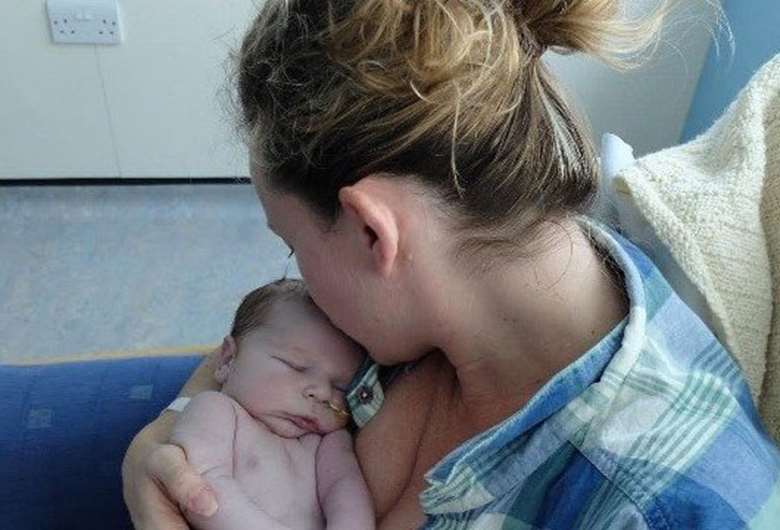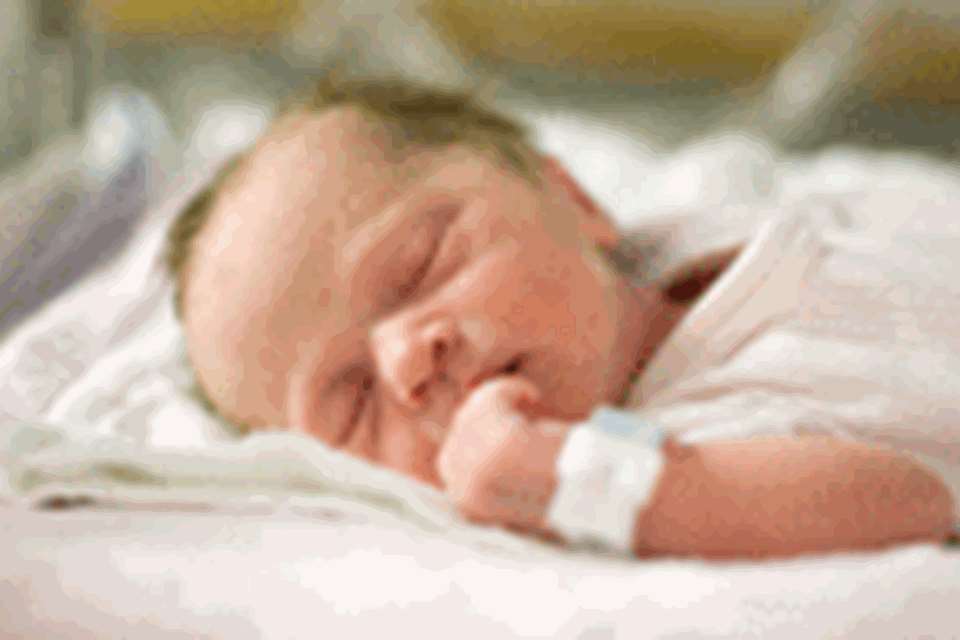Petition calls for Group B Strep test for newborns
Thursday, July 30, 2015
Nearly 200,000 people have signed a petition urging the health secretary to introduce routine screening for Group B Strep in pregnancy.

It follows the decision by the Department of Health (DH) last year to ditch plans to introduce a more accurate way of testing for Group B streptococcus in pregnant women.
Unlike other developed countries, pregnant women in the UK are not routinely offered tests to detect Group B Strep, the most common cause of life-threatening infection in newborn babies in England, Ireland, Scotland and Wales.
Instead, non-specific tests are used within the NHS to detect the infection. However, the charity Group B Strep Support (GBS) claims they are unreliable and give a high proportion of falsely negative results.
Group B Strep is a normal bacterium carried by around a quarter of women without symptoms. It can be passed from mother to baby during birth. However, if it is detected before, women can be given antibiotics during labour to protect their babies from the infection.
Carrying GBS during labour and delivery does not mean necessarily that a mother or their baby will become ill.
The petition, which calls on the health secretary Jeremy Hunt to ‘provide tests for Group B Strep to prevent any more avoidable deaths of newborn babies’, has been started by Fiona Paddon (pictured), who lost her nine-day-old baby Edward to the infection last year.
So far 190,377 people have signed the petition.
Ms Paddon argues that introducing a simple test, the GBS-specific Enriched Culture Medium (ECM) for Group B Strep carriage, which costs just £11, will reduce the number of babies being infected.
She states, ‘Since 2003, the UK has used “risk factors” to guess which pregnant women might be at risk. Risk factors are poor at predicting which babies will develop the infection -- the number of babies infected is growing. We need to stop guessing and start testing. The ECM test costs the NHS £11 each and the antibiotics used in labour (usually penicillin) cost the NHS pennies.
‘Had we had ECM tests in place, Edward Gili could be here today for us to see his first steps and hear his first words. We can’t afford to lose any more lives, we can’t afford not to do this.’
Ms Paddon also wants every pregnant woman to be offered information about Group B Strep.
Jane Plumb, chief executive of Group B Strep Support said, 'Fiona Paddon's petition, birthed out of the devastation of her son's death last year, has received huge support. In less than a month, almost 200,000 people have signed it - each of whom believes all pregnant women should be informed about group B Strep and offered the GBS-specific 'gold standard' test late in pregnancy. Surely the decision makers will listen and act.
'So many families have shared how Group B Strep has touched their lives - on the change.org/GBS petition page - thankfully, many have happy endings but some are simply heartbreaking. Overwhelmingly the response is frustration that, for the sake of providing information and offering a simple, safe test in pregnancy, babies are suffering avoidable and sometimes devastating infections.'
However, Public Health England has argued that there is no such thing as a 'gold standard' test.
Dr Anne Mackie, director of programmes for the UK National Screening Committee (UK NSC), said, ‘Following a review in collaboration with the Royal College of Obstetricians and Gynaecologists (RCOG), the Royal College of Midwives and NHS England, it was concluded that there was no clinical indication for testing women for Group B Streptococcus (GBS) carriage using Enriched-Culture Medium (ECM) methods.
‘The UK National Screening Committee’s (UK NSC) most recent review of screening concluded that the probability of a baby being affected by Early-Onset Group B Streptococcus (EOGBS) identified by antenatal testing with the ECM would be very low. However, the number of women that would be offered antibiotics as a result of having a positive test result would be very high. This could expose the mother and baby to unnecessary antibiotic use.
‘We want to reassure women that if, during pregnancy, or following the birth of their baby, there is any risk of an infection, under current clinical guidance from RCOG and the National Institute for Health and Care Excellence (NICE) appropriate treatment would be offered to ensure their and their baby’s safety.
‘An expert group, which includes the UK NSC, is currently developing a model looking at how screening in late pregnancy affects the likelihood of disability and death from GBS. This forum also provides an opportunity for experts to discuss important questions that are under much debate.
‘The findings of this model will inform the next review of screening policy by the UK NSC.’
A spokesperson from Public Health England also told Nursery World that it is currently following European trials into a GBS vaccine, results of which are not expected for some time.







